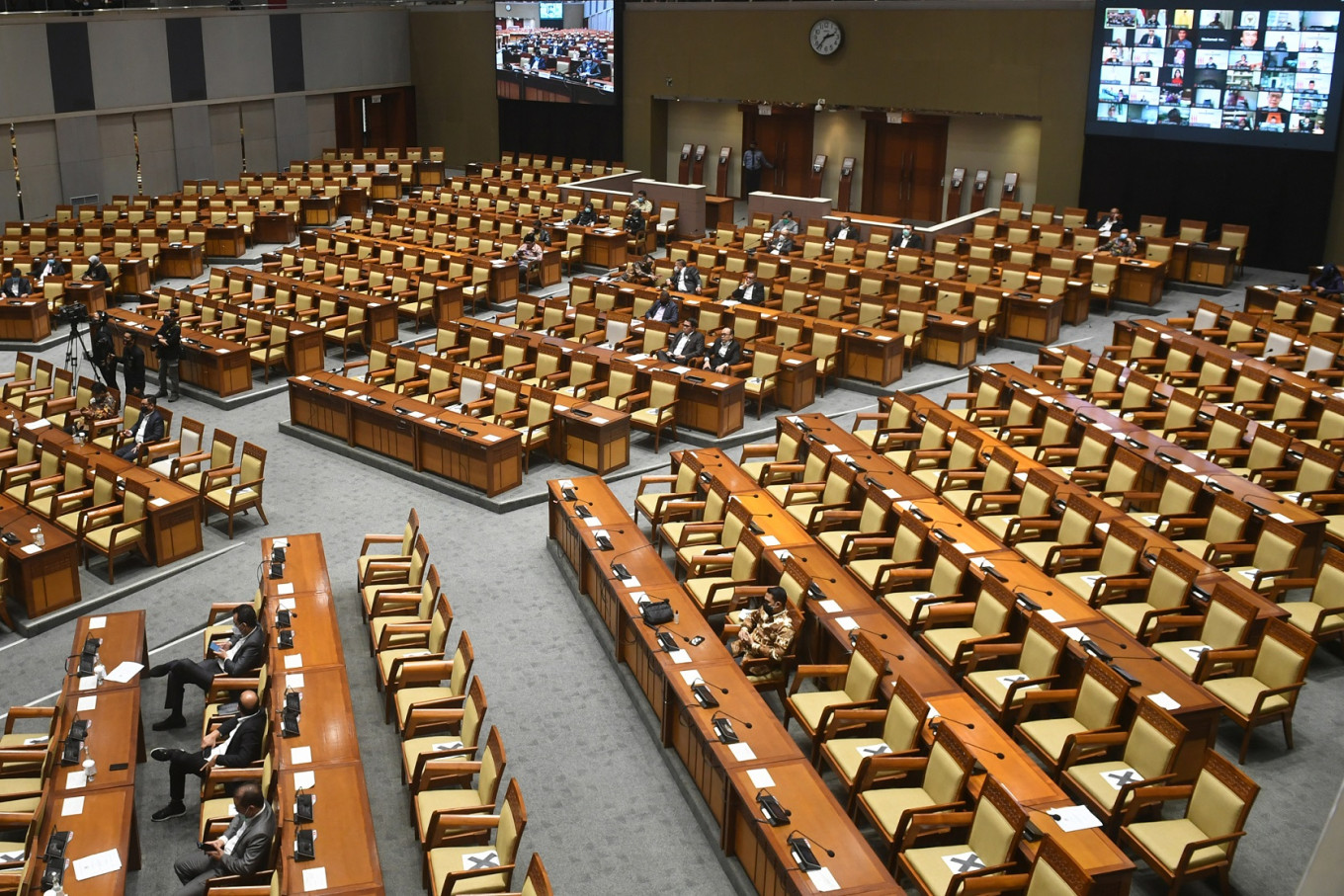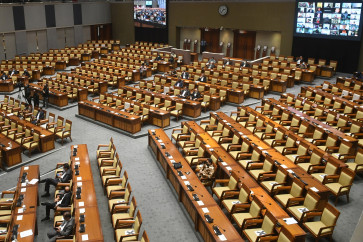Popular Reads
Top Results
Can't find what you're looking for?
View all search resultsPopular Reads
Top Results
Can't find what you're looking for?
View all search resultsHouse’s widespread private-sector affiliations raise concerns: Observers
Six out of 10 lawmakers have direct or indirect involvement in private enterprises, a new study has found.
Change text size
Gift Premium Articles
to Anyone
 The Marepus Corner, a group of independent sociopolitical researchers, presented a study last week that found that 318 members of the House – about 55 percent of the chamber – had roles in multisector enterprises, including manufacturing, technology, mining and construction.
(Antara/Puspa Perwitasari)
The Marepus Corner, a group of independent sociopolitical researchers, presented a study last week that found that 318 members of the House – about 55 percent of the chamber – had roles in multisector enterprises, including manufacturing, technology, mining and construction.
(Antara/Puspa Perwitasari)
B
usiness players dominate the House of Representatives; six out of 10 lawmakers have direct or indirect involvement in private enterprises, a new study has found.
The report comes amid a public outcry against the House’s ratification of the Job Creation Law after a furtive deliberation that included midnight decision-making and changing locations among hotels in several different cities during the week. Many critics, including scholars, say the law will be more beneficial to businesspeople than to the public.
Observers have raised concerns about conflicts of interest in the House, arguing that the large number of business-affiliated lawmakers make the chamber likely to produce legislation that will disproportionately favor business interests.
Marepus Corner, a group of independent sociopolitical researchers, presented the study last week. They found that 318 members of the House – about 55 percent of the chamber – have roles in multisector enterprises, including manufacturing, technology, mining and construction.
“The huge proportion of businesspeople in the House could lead them to only accommodate the interests of certain groups of people and neglect the interests of the public who actually voted for them in the last election,” said Marepus Corner researcher Defbry Margiansyah.
The figure surpassed that of a Tempo magazine study that found that 45 percent of the legislators in the 2019-2024 House had backgrounds in business.
The Marepus Corner study found that 43 percent of the 318 business-affiliated legislators had records as CEOs and members of boards of directors. Another 26 percent had experience as business owners, and the remaining 31 percent were either members of boards of commissioners or executives in multiple enterprises.
















